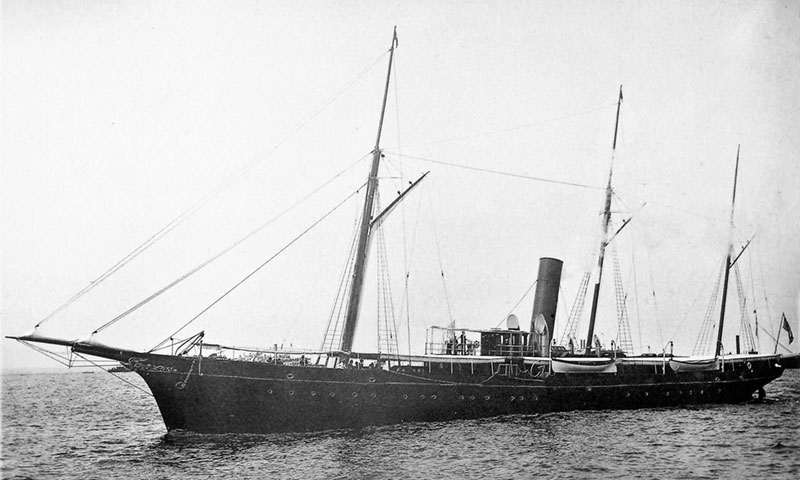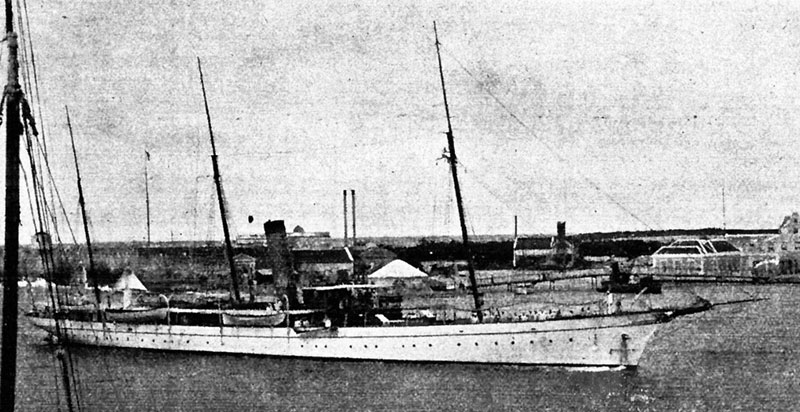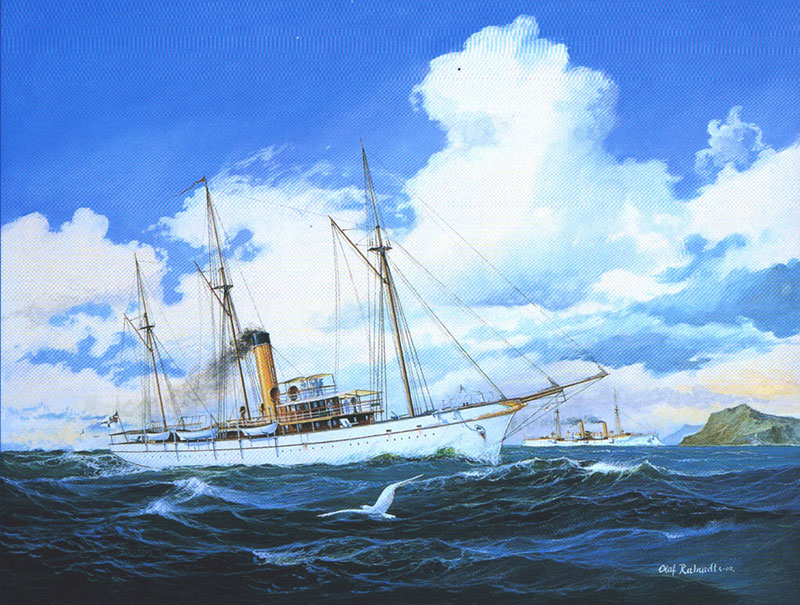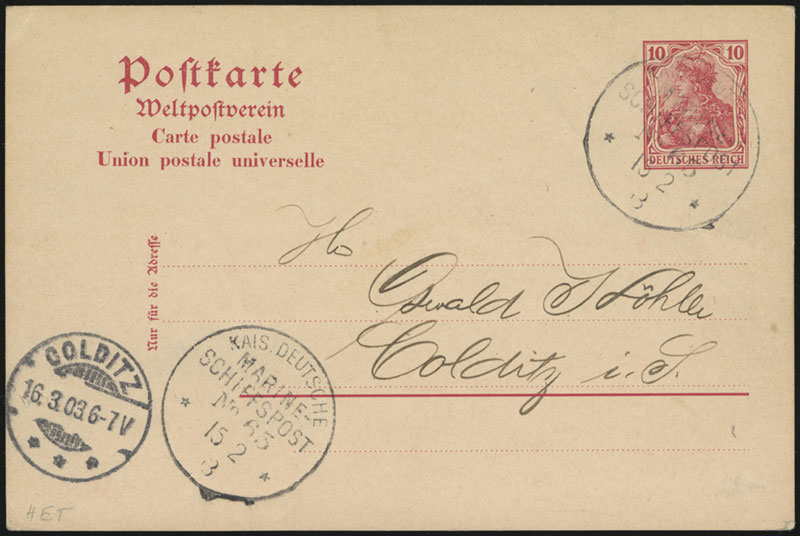Rare German Naval Cancel from a Captured Ship
Oct 12, 2023 17:25:03 GMT -5
kacyds, guyana1230, and 3 more like this
Post by PostmasterGS on Oct 12, 2023 17:25:03 GMT -5
Here’s a neat one from the collection.
As usual, let’s start with some background. In 1883, the William Cramp & Sons shipyard in Philadelphia completed a new, 228-foot (69 m) steam-powered yacht for famous financier Jay Gould. The yacht was christened the Atalanta.

Atalanta
Gould died in 1892, and in 1900, the yacht was sold to the Venezuelan Navy, who converted the ship into a gunboat and renamed her Restaurador (Restorer).
In late 1902, a dispute arose between Venezuela and several European nations over debts owed by Venezuela and damages suffered by European citizens during the numerous revolutions in Venezuela during the 1890s. In an attempt to pressure Venezuela into paying, in December 1902, Great Britain, Italy, and Germany sent fleets to blockade Venezuela in what became known as the Venezuelan Crisis of 1902-1903.
On 11 December 1902, the German light cruiser SMS Gazelle entered the harbor at Guanta and captured the Restaurador. Gazelle put a prize crew aboard to sail the ship to Trinidad, where from 13 December 1902 to 7 January 1903, it was prepared for use by the German navy as part of the blockading force.


Restaurador in German service
A crew was assembled from the other German ships until a dedicated crew could arrive. This dedicated crew arrived on the steamer Sibiria on 29 January 1903. The Sibiria also carried on board a German Marine-Schiffspost (Naval Ship Post) canceller, MSP No. 65 (MSP cancellers were often issued to civilian steamers when chartered to carry German military forces). When the crew manned the Restaurador, they brought the Sibiria's MSP canceller with them.
Following a series of negotiations to resolve the crisis, the blockade was ended on 19 February 1903, and the Germans returned the Restaurador to the Venezuelan Navy on 23 February 1903.
Thus, the MSP No. 65 canceller was only used aboard the Restaurador for a brief period, 29 January 1903 to 23 February 1903. After that date, the canceller was returned to the steamer Sibiria, which again used it on her return voyage to Germany.
Show below is a postcard sent by a German sailor from the SMS Restaurador on 15 February 1903. There is no message on the reverse, so it was likely sent for philatelic reasons. Regardless, it's a rare usage from the short period in which the MSP canceller was on board.

As usual, let’s start with some background. In 1883, the William Cramp & Sons shipyard in Philadelphia completed a new, 228-foot (69 m) steam-powered yacht for famous financier Jay Gould. The yacht was christened the Atalanta.

Atalanta
Gould died in 1892, and in 1900, the yacht was sold to the Venezuelan Navy, who converted the ship into a gunboat and renamed her Restaurador (Restorer).
In late 1902, a dispute arose between Venezuela and several European nations over debts owed by Venezuela and damages suffered by European citizens during the numerous revolutions in Venezuela during the 1890s. In an attempt to pressure Venezuela into paying, in December 1902, Great Britain, Italy, and Germany sent fleets to blockade Venezuela in what became known as the Venezuelan Crisis of 1902-1903.
On 11 December 1902, the German light cruiser SMS Gazelle entered the harbor at Guanta and captured the Restaurador. Gazelle put a prize crew aboard to sail the ship to Trinidad, where from 13 December 1902 to 7 January 1903, it was prepared for use by the German navy as part of the blockading force.


Restaurador in German service
A crew was assembled from the other German ships until a dedicated crew could arrive. This dedicated crew arrived on the steamer Sibiria on 29 January 1903. The Sibiria also carried on board a German Marine-Schiffspost (Naval Ship Post) canceller, MSP No. 65 (MSP cancellers were often issued to civilian steamers when chartered to carry German military forces). When the crew manned the Restaurador, they brought the Sibiria's MSP canceller with them.
Following a series of negotiations to resolve the crisis, the blockade was ended on 19 February 1903, and the Germans returned the Restaurador to the Venezuelan Navy on 23 February 1903.
Thus, the MSP No. 65 canceller was only used aboard the Restaurador for a brief period, 29 January 1903 to 23 February 1903. After that date, the canceller was returned to the steamer Sibiria, which again used it on her return voyage to Germany.
Show below is a postcard sent by a German sailor from the SMS Restaurador on 15 February 1903. There is no message on the reverse, so it was likely sent for philatelic reasons. Regardless, it's a rare usage from the short period in which the MSP canceller was on board.





